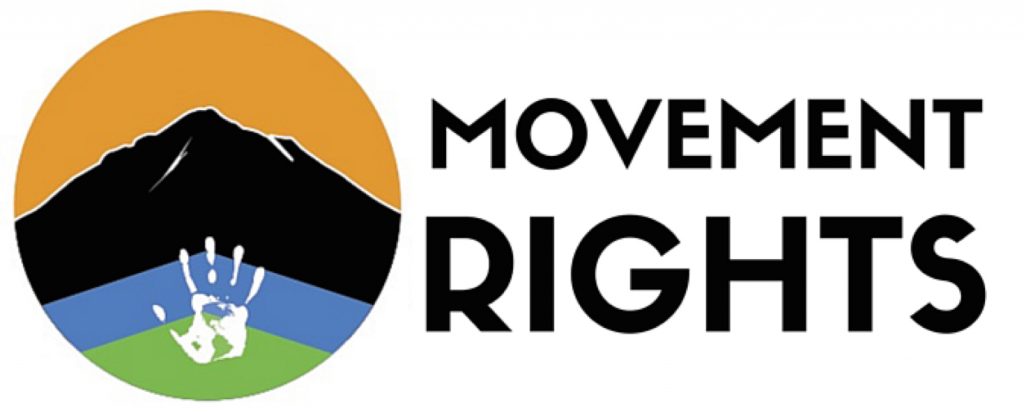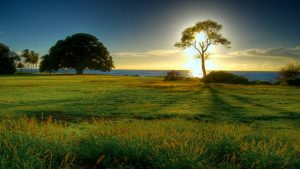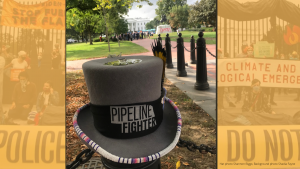Speech by Shannon Biggs at the press conference in Bolivia on August 20th, a day after the Tribunal was detained at the TIPNIS. Transcript in English / Spanish.
Transcript (English):
I’m going to talk a little bit about the government of the Tribunal and the role of Bolivia in the global movement for the Rights of Nature.
This is my second time in Bolivia. It’s a country that has had a great impact in my life and in my work. The first time I was here I went to Tiquipaya at the invitation of Evo Morales. He praised the work of those who were defending the rights of Mother Earth.
What was created in Tiquipaya was an explosion for the movement and energy for the Rights of Nature. It inspired action globally and created a powerful document, the Universal Declaration for the Rights of Mother Earth. That declaration spells out the relationship between humans and all of Earth’s life forms, the kind of relationship we need to have if we as humans wanting continue as a species on this planet. It speaks of a system of reciprocity, following the laws of nature, and recognizing that human laws need to be connected to the laws of nature. It also addresses changes to human laws, culture, economy, and energy, to achieve a balance that is necessary for life. It was inspirational for indigenous people all over the world as well.
At home in the United States, I work with the indigenous Ponca nation of Oklahoma. Their population faces a death per week from fracking and underneath their land are 2,000 miles of oil pipelines. They cannot grow organic food within 16 miles of their land. Their wells are poisoned and they must to buy water from the city.
But from all of those destruction comes leadership. This year they have become the first tribal nation in the United States to recognize the rights of nature, to stop fracking and pipelines, and to protect their territory.
Also I have just come back from New Zealand where I was visiting with the Maori indigenous people who have recognized the rights of entire ecosystems, including rivers.
The Whanganui tribe are called the “river people” and they say that “I am the river and the river is me, from the mountain to the sea.” They understand the river as their ancestor and now the government of New Zealand also recognizes the river as a spiritual, holistic being with rights based upon indigenous cosmology.
All over the world this work is moving forward. The Rights of Nature Tribunal is also emerged from Tiquipaya.
As a judge on the Tribunal in Bonn, Germany in November, I was very moved by the presentation and the passionate case of the TIPNIS and the invitation for a commission to come to Bolivia, to return to see for themselves what is at stake, to meet with the people on all sides, and the government as well. So we are grateful for the opportunity to be here and for me personally to return to Bolivia in this way.
Voy hablar un poco sobre el gobierno del la comisión del Tribunal y el papel de Bolivia en el movimiento global para los derechos de la naturaleza.
Es mi segunda vez in Bolivia. Es un país que ha tenido gran impacto en mi vida y en mi trabajo. La primera vez que estuve fue por la invitación de Evo Morales. Elogió el trabajo de los que estaban defendiendo los derechos de la Madre Tierra.
Lo que se creo en Tiquipaya fue una explosión para el movimiento y energía para los derechos de la naturaleza. Inspiró acción global y creo un documento poderoso, la Declaración Universal de Los Derechos de la Madre Tierra. Ese declaración deletrea la relación dentro de los humanos y todos los seres vivientes de la tierra, el tipo de relación que deberíamos tener si nosotros como humanos quisiéramos continuar como specie en este planeta. Habla de una sistema de reciprocidad, de seguir las leyes de la naturaleza, y de reconocer que las leyes humanas tienen que estar conectadas a las leyes de la naturaleza. Tambien habla sobre cambios en leyes humanas, cultura, economía, y energía para lograr un equilibrio necesario para la vida. Fue un inspiración para gente indígena por todo el mundo.
En EEUU, trabajo con la nación indígena de los Ponca de Oklahoma. Su población sufre una muerte por semana por el fracking y debajo de su territorio tienen 2 mil millas de pipas de petroleras. No pueden cosechar comida orgánica dentro de 16 millas de su tierra. Sus pozos de agua se están envenenadas y tienen que comprar su agua de la ciudad.
Pero de tanta destrucción surge liderazgo. Este año fueron el primer nación tribal en EEUU de reconocer los derechos de la naturaleza, parar el fracking y las pipas petroleras, y proteger su territorio.
Tambien, yo acabo de regresar de Nueva Zelanda en donde estaba visitando el pueblo indígena Maori quienes han reconocido los derechos de ecosistemas enteras, incluyendo ríos.
El tribu Whanganui se llaman la “gente del río” y dicen que “yo soy el río y el río es mi, desde la montaña hasta el mar.” Ellos entienden el río como su ancestro y ahora el gobierno de Nueva Zelanda también reconoce el río como una entidad espiritual, holística con derechos basados en cosmología indígena.
Por todo el mundo este trabajo sigue avanzando. La comisión del Tribunal también emergió de Tiquipaya.
Como juez en la comisión del Tribunal en Bonn, Alemania en noviembre, me emocionó la presentación y caso apasionado del TIPNIS y la invitación a que la comisión llegara a Bolivia, a regresar y ver por ellos mismos lo que se trata, a conocer la gente de ambos lados del asunto, incluso el del gobierno también. Estamos agradecidos por la oportunidad de estar aquí y para mi en lo personal, de regresar a Bolivia de esta manera.





